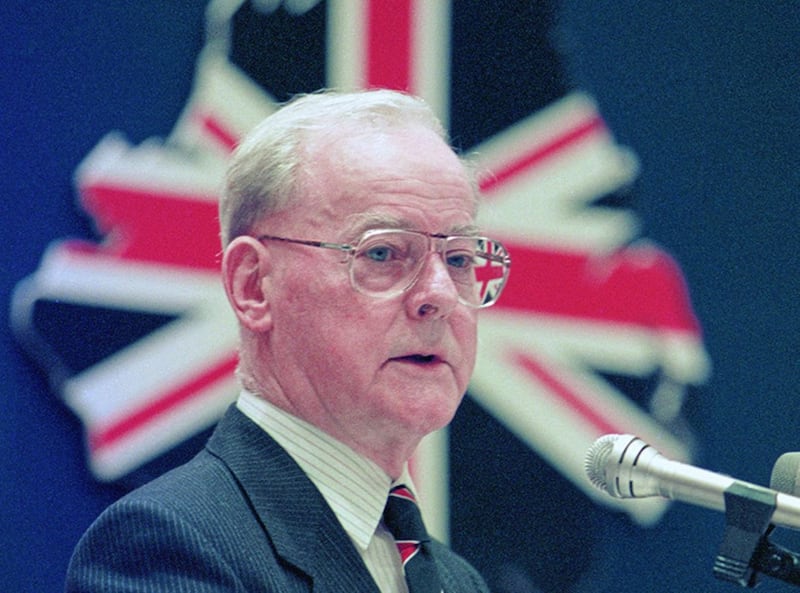The last stanza of Maurice Craig’s ballad sums up the unionist worm’s eye view of the world.
‘The bricks they will bleed and the rain it will weep / And the damp Lagan fog lulls the city to sleep / It’s to hell with the future, we’ll live in the past / May the Lord in his mercy be kind to Belfast.’
Craig would know, having been born in 1919 into a unionist Presbyterian family. However, he got out of here as soon as he could and rejected religion and unionism.
After working in London he returned to Ireland in 1970 and ended up as executive secretary to An Taisce in Dublin, having gained a reputation as a historian, conservationist and poet. He wrote the ballad in 1974 in exasperation at unionist antics that year as they tore themselves apart repudiating Faulkner’s attempt to restore a Stormont administration, this time including nationalists on an equal footing.
Essentially what the insurrectionist unionists were demanding was a return to 1972, which of course was never going to happen. Craig satirised their behaviour.

‘We swore by King William, there’d never be seen / An all-Ireland parliament at College Green / And at Stormont we’re nailing the flag to the mast / May the Lord in his mercy be kind to Belfast.’
Having successfully wrecked the Sunningdale agreement, unionists – irrevocably split into hardliners and extreme hardliners, as they remain to this day – rejected for 25 years any attempt to restore power-sharing, spurning all blandishments of the harmless SDLP.
Why did successive unionist leaders not accept the deal that was there on the table? Okay, Jim Molyneaux was dimmer than a 40-watt bulb. He was also scared of being ‘lundified’ by Paisley, but fundamentally he agreed with Paisley about power-sharing. Molyneaux’s ploy to avoid it was to subscribe to Enoch Powell’s policy, which was complete integration with Britain – again a fantasy.

All those wasted years are primarily an illustration of the profoundly flawed unionist belief mediated by their political leaders that the future should be like the past. This belief is held as a matter of faith despite all evidence to the contrary, but then that’s how faith is manifested.
The consequence of this mistaken belief is that unionist political leaders are unable to plan for the future, since they can’t contemplate a future different from the past. All their efforts go into preventing change of any kind, and that’s not a recent development. Supporters of union with Britain have opposed every change, political, constitutional and social, beginning with Catholic emancipation in the 1820s.
Similarly, their successors the UUP, then DUP, have also opposed, and where possible blocked, any change since 1969. Council reforms, housing reforms, fair employment, policing of course, and most adamantly, power sharing and relations with the rest of the island, are only some examples. These could be multiplied if you started to look at opposition to social change, but you get the point.
Unionist political leaders are unable to plan for the future, since they can’t contemplate a future different from the past. All their efforts go into preventing change of any kind
You can see now clearly how support for Brexit was grasped as a never-to-be-repeated opportunity to return to the beloved past: a hard British border on the island, repudiating the Good Friday Agreement’s most obnoxious requirements like human rights, formal north-south links, EU oversight, and gaining that shimmering Shangri-La – closer links to Britain as an exclusive trading bloc. In short a veritable herd of unicorns.

Jeffrey Donaldson’s recent speech, regarded by some as a belated ‘light bulb moment’, when he admitted demographic change here is happening, was in essence an appeal, forlorn though it is, to people to join the DUP to keep the north the same, to enjoy the benefits of being in the UK, though he didn’t mention any.
When it comes down to it what Donaldson, like unionist leaders before him, was asking his audience to accept was plus ça change, plus c’est la même chose. As always, look back to see the future.




